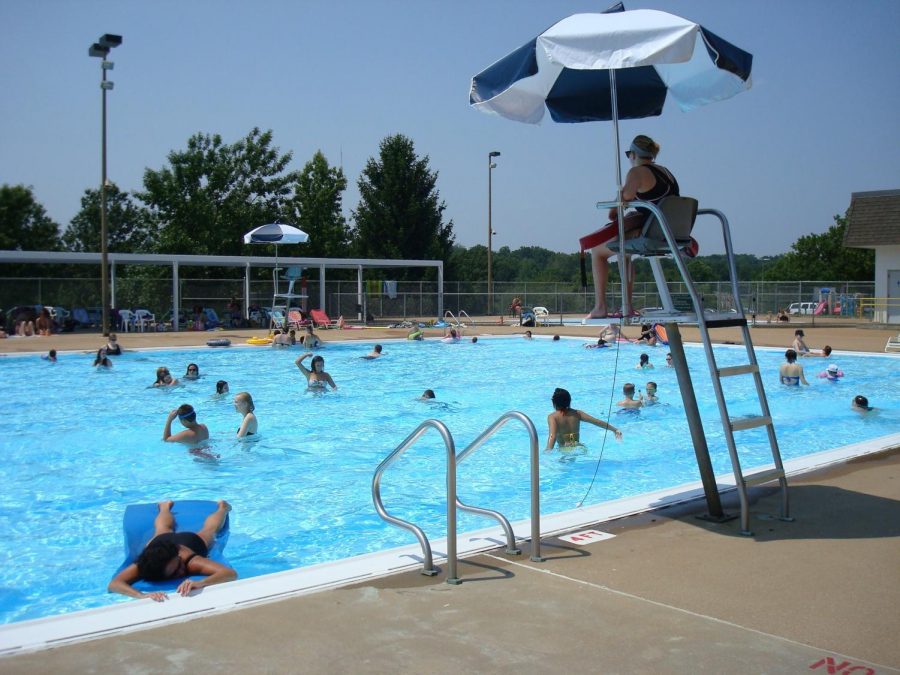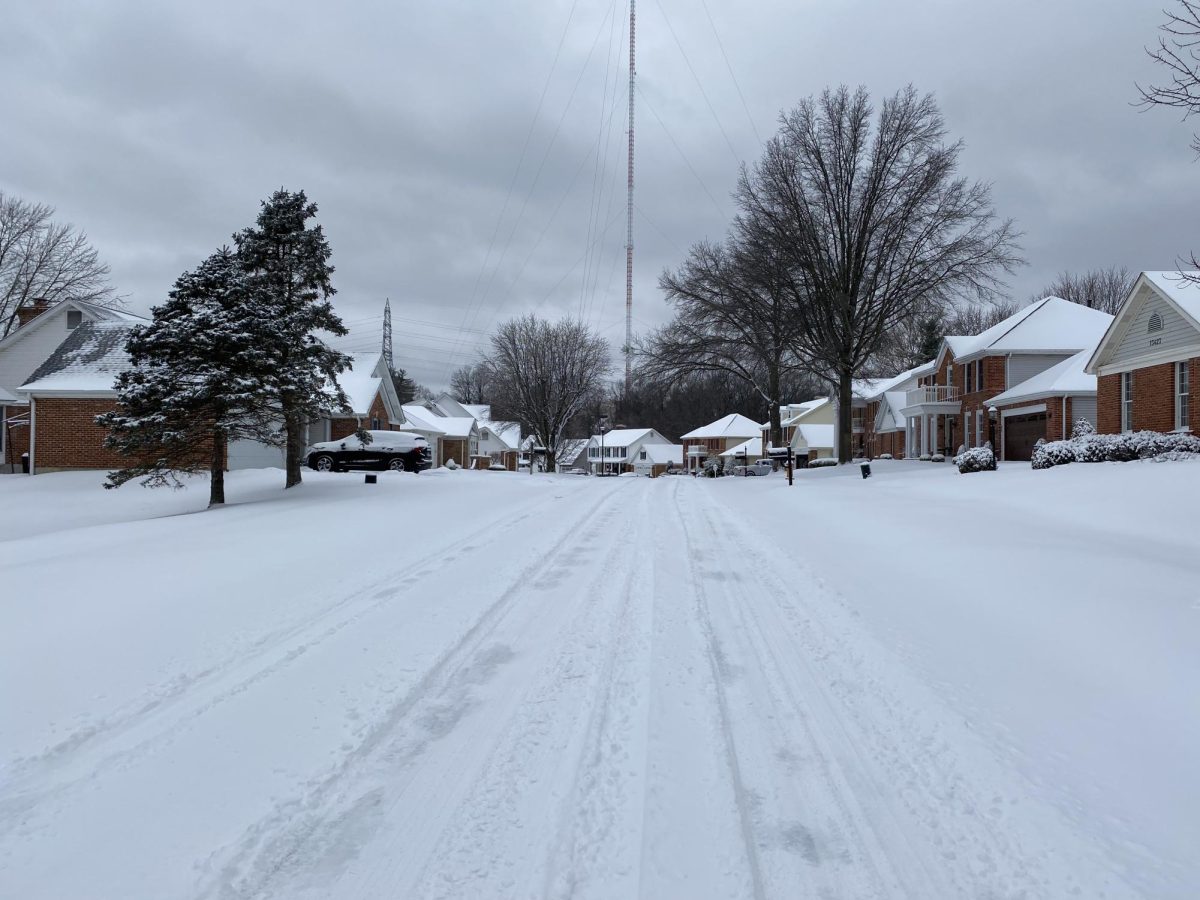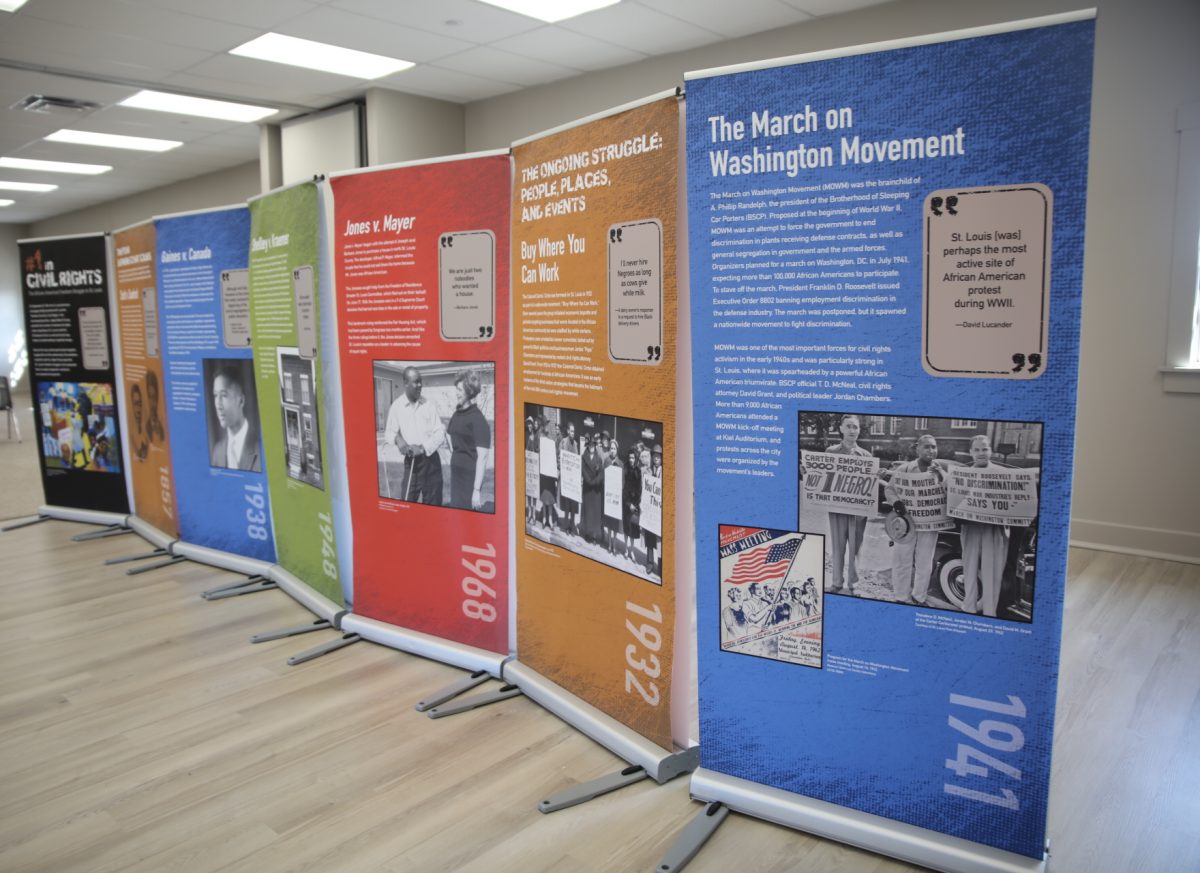Sunset Hills officials are exploring the potential redevelopment of the Cenveo property on Watson Road.
The Board of Aldermen voted unanimously last week to authorize the city to issue a request for proposals, or RFP, to redevelop the vacant property just east of South Lindbergh Boulevard at 10300 Watson Road.
Aldermen also voted 6-2 to approve an agreement with urban consultant Peckham, Guyton, Albers & Viets, or PGAV, to formulate the RFP. Ward 1 Alderman Frank Hardy and Ward 2 Alderman Tom Hrastich were opposed.
The city will pay PGAV a $2,500 fee plus such expenses as local mileage to and from meetings and document printing costs.
The Sunset Hills Business Development Committee voted unanimously last month to recommend the city issue an RFP after a discussion with PGAV Vice President John Brancaglione.
Brancaglione told the committee that a New York-based real estate company representing Cenveo had a potential tenant lined up to occupy part of the building, according to unofficial minutes of the committee’s July 20 meeting.
Cenveo, a printing company, has been trying to sell the roughly 2.7-acre site since it relocated last year to a larger facility in Eureka.
However, the roughly 53,000-square-foot building currently doesn’t comply with code and requires such improvements as the installation of a sprinkler system and a water line under Watson Road.
Brancaglione suggested the city issue an RFP to see what types of projects developers submit, according to the meeting minutes.
Ward 3 Alderman Stephen Webb, who chairs the Business Development Committee, said last week the group and city officials recently toured the Cenveo site.
“It’s a very unique building,” he told the board at its Aug. 9 meeting. “It was added on to a series of times. I only mention that because of the fact that it’s a very unusual configuration and its reuse is very much limited outside of some uses that potentially may not be necessarily desirable or preferred …”
Webb stressed the city’s agreement with PGAV was nonbinding.
“The only thing that we’re committing ourselves to at this point in time is spending about $2,500 plus some expenses to solicit ideas from other developers and construction entities or whoever else might be interested in redeveloping the property,” he said. “No commitment on behalf of the city in terms of incentives or anything else, but we are looking for ideas — good ideas — that would benefit the city and our residents.”
While there are other vacant properties around the city, “sometimes we’re a little bit more limited in what we can do depending on who owns it, what’s surrounding the property,” Webb said. “This one’s a little bit more advantageous. It really gives us a good opportunity to be proactive in terms of planning, which I think we all aspire to do.”
Webb noted PGAV has worked with Sunset Hills in the past and said that the city’s interest in a possible redevelopment lends credibility to the idea.
While Hardy agreed that issuing an RFP was a “proactive step,” he wondered if another urban planner in the area could prepare the request for less than $2,500, which “to write a letter seems like a whole lot of money,” he said.
Hardy also noted the initial PGAV agreement would not cover certain services, such as a financial analysis of any proposals received and negotiations with prospective developers.
PGAV could do that additional work at the city’s request under a modified or separate agreement, Brancaglione wrote in a letter to Mayor Bill Nolan.
“So this $2,500 is a base fee — which we may already have a letter that we can copy on a city letterhead and send it out ourselves — and incidental fees plus the possibility of additional fees,” Hardy told the board. “… I think we ought to look at other urban planners and get their proposals to see how much they would charge.”
Hardy later mentioned Development Strategies, a firm that also has worked with the city previously.
Webb replied that the proposed agreement would afford the city the opportunity to provide some “guidance” and “direction” as to what it would like to see occupy the Cenveo site. The time it would take to solicit bids from other planners may outweigh any cost savings, Webb added.
“And the other thing, too, is although it’s not the most urgent from a time perspective, the longer we sit and watch the more incentivized obviously Cenveo is to unload that piece of property and they could very well find a tenant that again has a less desirable use …,” Webb said. “I don’t disagree that (contacting other planners) could be an option, but at the same time I don’t think it’s a terribly significant amount of money that we should go down that path …”
Nolan said he understood that $2,500 was an “extremely reasonable offer” to prepare an RFP.
“An RFP is a lot more than a letter,” he said. “There’s multiple pages involved in the preparation of an RFP along with the preparation for people to receive the RFP.”
City Engineer/Director of Public Works Anne Lamitola later explained that city officials recently met with Cenveo’s broker, which had a number of economic development questions. The city referred the broker to PGAV, Lamitola said.
Hardy said, “Was PGAV the only one you referred them to?”
Lamitola said, “That’s who I referred them to because I knew they that were familiar with the city. They’ve worked with the city before; they’re a a well-known urban planner in the area. So that’s who they contacted and that’s kind of how this transpired at the onset.”
Cenveo purchased the Watson Road property in 2006 for $2.24 million, and the site was appraised at $2.7 million this year, according to county real estate records.








